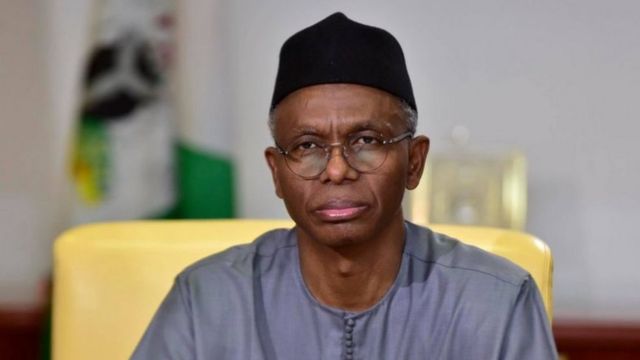The National Civil Society Council of Nigeria (NCSCN) has publicly rebuked former Kaduna State Governor, Nasir El-Rufai, for his accusations against National Security Adviser (NSA), Nuhu Ribadu. El-Rufai alleged that the Office of the National Security Adviser (ONSA) orchestrates ransom payments to bandits and insurgents under the guise of a “non-kinetic” approach to combating these threats. The NCSCN, however, has demanded that El-Rufai substantiate his claims within 72 hours or issue a public apology to both the NSA and the national security apparatus. Failure to comply, the council warned, would result in El-Rufai being blacklisted by the organization. The NCSCN emphasized its commitment to a global stance against negotiating with terrorists and bandits, while simultaneously advocating for non-kinetic strategies to secure the release of captive Nigerians. They criticized El-Rufai’s statements as reckless, inflammatory, and politically motivated, urging Nigerians to prioritize the safety and security of their fellow citizens over personal agendas.
The NCSCN’s Executive Director, Ambassador Blessing Akinlosotu, addressed the media in Abuja, highlighting the gravity of El-Rufai’s unsubstantiated allegations. Akinlosotu stressed the importance of appreciating the efforts and investments made towards safeguarding lives, emphasizing that El-Rufai’s claims, devoid of supporting evidence, were not only unfortunate but also unbecoming of a leader of his stature. He further characterized the accusations as vindictive and potentially fueled by political motivations. The council’s demand for proof or an apology underscores their commitment to upholding the integrity of the national security architecture and preventing the spread of misinformation that could undermine public trust and potentially endanger ongoing security operations.
The NCSCN’s stance reflects a broader debate on the efficacy of kinetic versus non-kinetic approaches in tackling insecurity. While firmly opposing negotiations with terrorists, the council acknowledges the role of non-kinetic measures in securing the release of hostages. This nuanced approach distinguishes between outright appeasement of terrorist demands and strategically employing non-violent methods to protect innocent lives. The call for El-Rufai to validate his accusations or retract them serves as a critical step in ensuring responsible public discourse on sensitive security matters. Allowing such serious allegations to circulate unchecked could erode public confidence in national security institutions and create unnecessary anxieties.
Beyond demanding accountability from El-Rufai, the NCSCN also proposed proactive measures to enhance transparency and collaboration between the ONSA and civil society. They recommended the establishment of a Non-Kinetic Civil Space Engagement Unit within the ONSA, staffed by a seasoned civil society activist and supported by desk officers across all security formations. This unit would facilitate the dissemination of information about ONSA activities, fostering greater public understanding and potentially mitigating the spread of misinformation. This proposal underscores the council’s belief in the importance of open communication and collaboration between security agencies and civil society to effectively address complex security challenges.
The NCSCN’s call for a more integrated approach to security, combining both kinetic and non-kinetic methodologies, highlights the need for a comprehensive strategy that goes beyond purely military solutions. They argue that a nation claiming absolute non-negotiation or relying solely on military force is either in denial or being hypocritical, suggesting that a nuanced approach is necessary to navigate the complexities of terrorism and banditry. This perspective aligns with the growing recognition that lasting security requires a multi-faceted approach that addresses the root causes of conflict, engages with communities, and prioritizes the protection of civilian lives.
In conclusion, the NCSCN’s strong condemnation of El-Rufai’s allegations against the NSA reflects their commitment to upholding the integrity of national security institutions and promoting responsible public discourse on security matters. Their demand for evidence or an apology, coupled with their proposal for enhanced communication and collaboration between ONSA and civil society, demonstrates a proactive approach to strengthening national security. Furthermore, their advocacy for a balanced strategy that integrates both kinetic and non-kinetic measures underscores the need for a comprehensive and nuanced approach to tackling the complex security challenges facing Nigeria. The council’s actions aim to foster greater transparency, accountability, and public trust in the efforts to combat terrorism and banditry.














